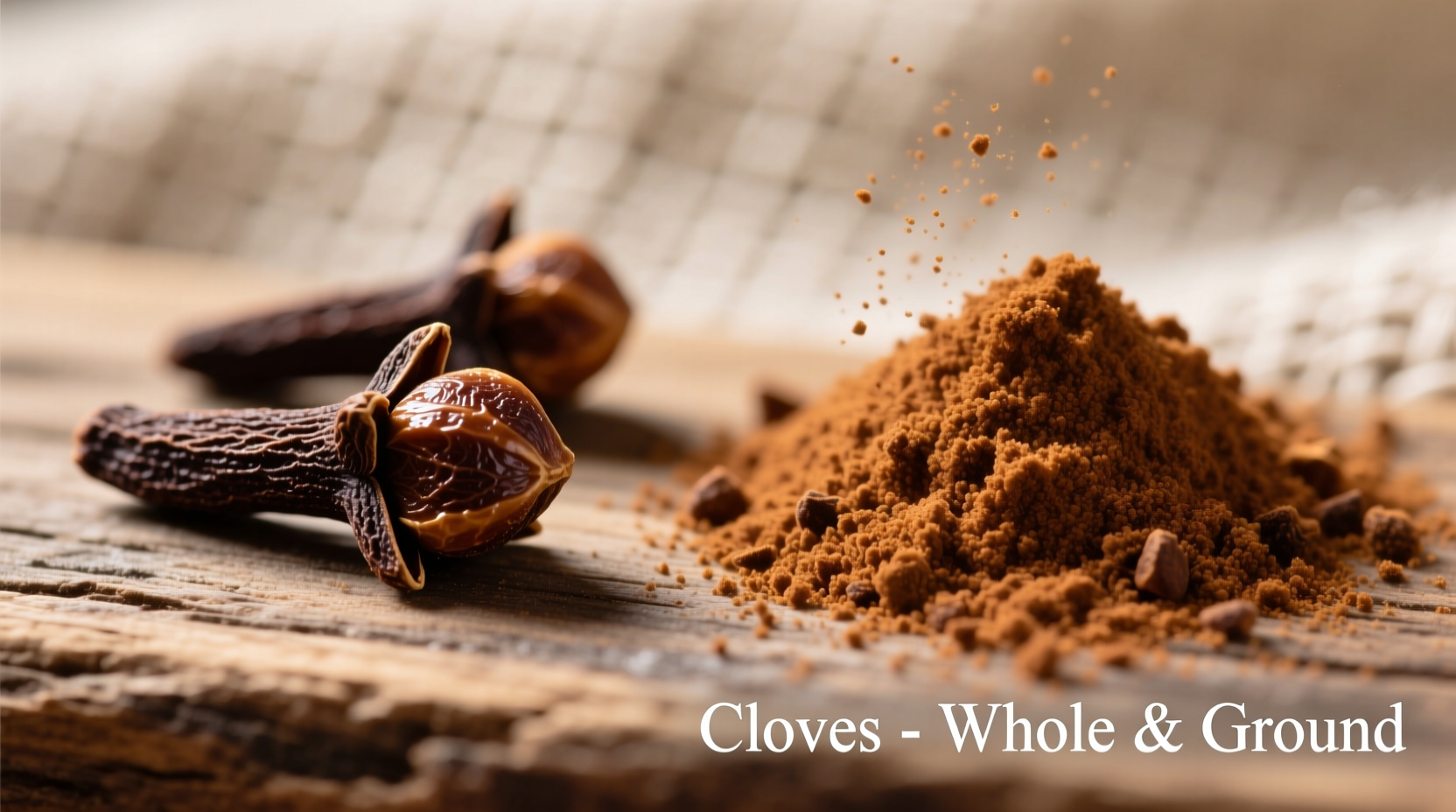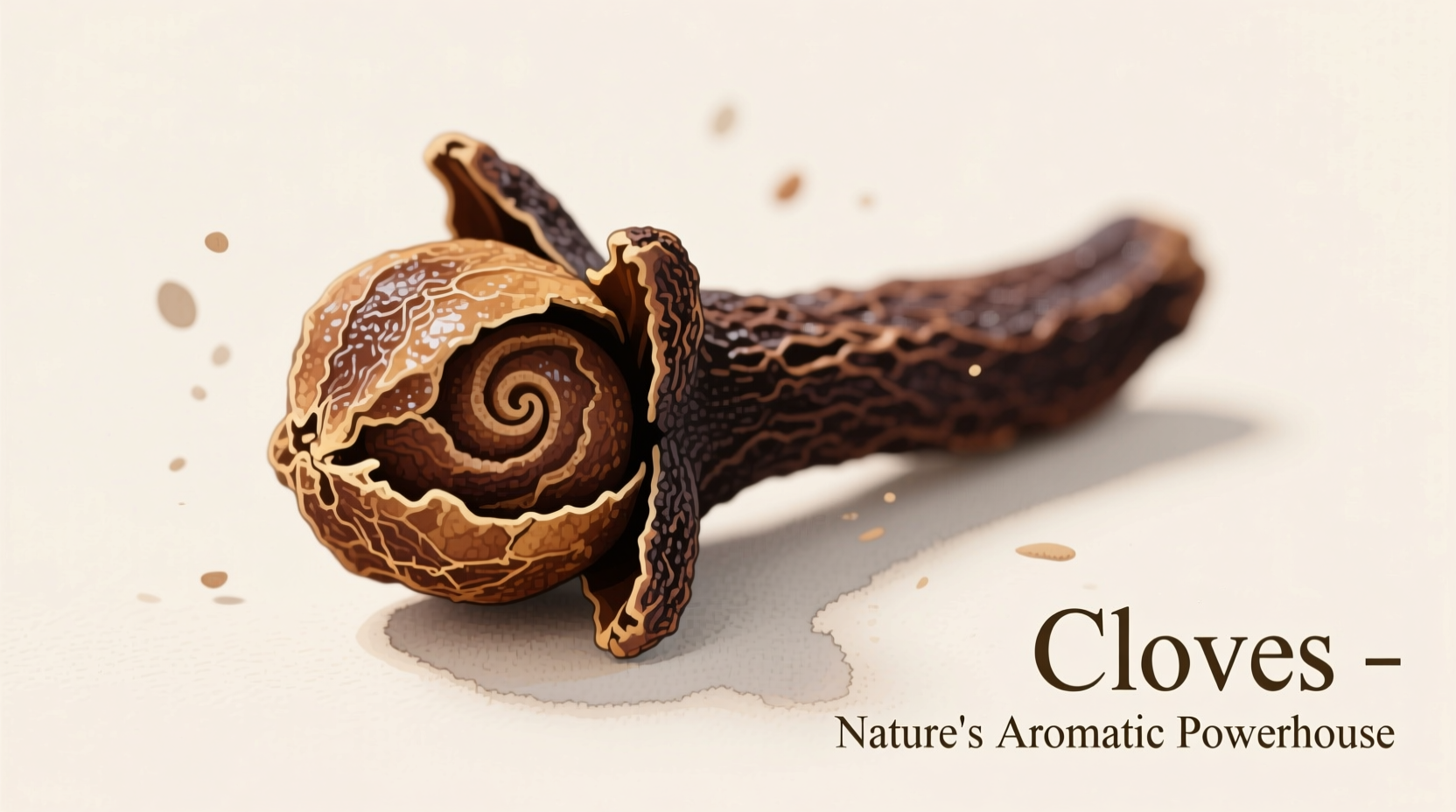When you're searching for what cloves are good for, you're probably looking for practical applications beyond just holiday baking. These small but mighty dried flower buds pack a powerful punch in multiple areas of daily life. Let's explore exactly how cloves can benefit your kitchen, health, and household with evidence-based information you can trust.
Culinary Powerhouse: Flavoring Your Favorite Dishes
Cloves deliver a warm, sweet-spicy flavor that enhances both sweet and savory dishes. Professional chefs rely on cloves for specific culinary applications where their unique profile shines:
- Meat preparation: Studging hams and roasts with whole cloves adds depth to holiday dishes
- Spice blends: Essential in garam masala, Chinese five-spice, and pumpkin spice mixes
- Beverage enhancement: Perfect for mulled wines, chai teas, and spiced ciders
- Preservation: Natural antimicrobial properties help extend food shelf life
For maximum flavor extraction, toast whole cloves briefly in a dry pan before grinding. This simple technique professional chefs use releases up to 30% more aromatic compounds compared to using cloves straight from the container.

Science-Backed Health Benefits You Can Trust
While cloves have been used in traditional medicine for centuries, modern research validates several specific health applications. The National Center for Biotechnology Information confirms that eugenol, cloves' primary active compound, delivers measurable benefits:
| Benefit | Scientific Evidence | Practical Application |
|---|---|---|
| Dental pain relief | Multiple studies show eugenol's effectiveness as temporary toothache remedy | Diluted clove oil on cotton ball applied to affected area |
| Antioxidant properties | ORAC value of 290,283 μmol TE/100g (USDA data) | Adding to recipes boosts meal's antioxidant profile |
| Anti-inflammatory effects | Research published in Phytotherapy Research shows reduced inflammation markers | Clove tea consumption for minor inflammatory conditions |
Household Uses Beyond the Kitchen
Cloves serve practical purposes throughout your home. Their natural properties make them valuable for non-culinary applications:
Natural Air Freshener and Pest Deterrent
Place whole cloves in small bowls around your home or stud oranges with cloves for natural, chemical-free air freshening. The strong scent deters insects including mosquitoes and pantry pests. According to research from the Journal of Insect Science, clove essential oil demonstrates significant repellent activity against common household pests.
Food Preservation Aid
Add whole cloves to vinegar-based pickling solutions to extend shelf life. The antimicrobial properties documented by the National Institutes of Health help prevent spoilage in preserved foods.
Important Considerations and Limitations
While cloves offer numerous benefits, understanding their limitations ensures safe and effective use:
When Cloves Aren't the Best Solution
- Dental emergencies: Clove oil provides only temporary relief for toothaches; always see a dentist for proper treatment
- Medical conditions: Not a substitute for prescribed medications for serious health issues
- Concentrated use: Undiluted clove oil can cause tissue irritation
Safety Guidelines for Home Use
The American Dental Association recommends diluting clove oil with a carrier oil (1 part clove oil to 5 parts olive or coconut oil) when using for oral applications. Never apply undiluted clove oil directly to gums or skin. Children under 2 should avoid clove oil applications entirely.
Choosing and Storing Cloves for Maximum Benefit
Not all cloves deliver the same quality benefits. Follow these professional chef recommendations:
- Selection: Choose plump, oily buds with intact caps (the small ball at the top)
- Freshness test: Drop in water - fresh cloves sink, stale ones float
- Storage: Keep in airtight container away from light and heat
- Shelf life: Whole cloves last 1-2 years, ground cloves only 6 months
For medicinal applications, look for cloves with higher eugenol content (typically between 70-90%). Research from the Journal of Agricultural and Food Chemistry indicates Madagascar cloves often contain the highest concentration of beneficial compounds.
Putting Cloves to Work in Your Daily Routine
Here's how to incorporate cloves into your everyday life with practical applications:
Simple Clove Tea Recipe for Wellness
Crush 3-4 whole cloves and steep in 8oz of hot water for 10 minutes. Strain and add honey if desired. This tea provides antioxidant benefits and can soothe minor sore throats. According to a 2020 study in the Journal of Traditional and Complementary Medicine, regular consumption of clove tea demonstrates measurable anti-inflammatory effects.
Emergency Toothache Remedy
Mix one drop of clove oil with a teaspoon of olive oil. Apply to cotton ball and hold against painful tooth for temporary relief. This method, recommended by dental professionals for emergency situations, works because eugenol numbs nerve endings while reducing inflammation.











 浙公网安备
33010002000092号
浙公网安备
33010002000092号 浙B2-20120091-4
浙B2-20120091-4